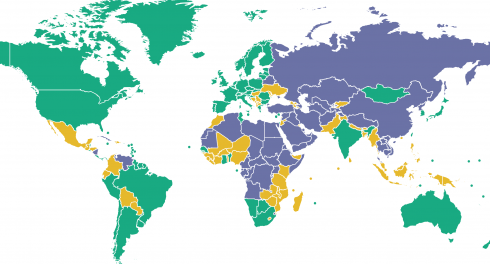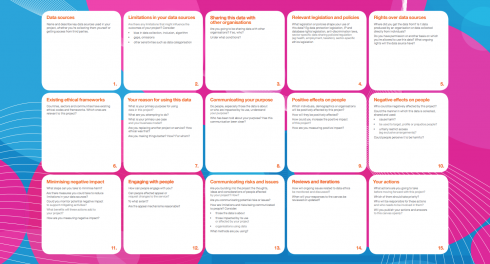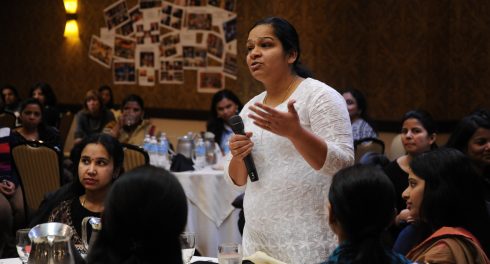Highlights
- All on the watched list
- Rule bending
- Bossing big oil
- Non-production woes
- Sporting scrutiny
- Going local
- TAI Spotlight: Collaboration Case Note: Member bilateral support
All on the watched list

Image Source: Jefferson Rubio via Medium
CIVICUS released the annual State of Civil Society report. Duncan Green was among those distilling highlights – not least the top-down, heavy-handed government responses during the pandemic that have shaped pains and gains for civil society. Tom Carothers and Fatou Jagne Senghore weigh in on the need to defend and enhance civic space during and after the pandemic.
Of course, as more people have become more reliant on digital spaces given lockdowns, the threats to privacy have been building. Feels like we will ultimately be forced to choose who snoops on us – big tech or government. For an action plan re big tech, see Martin Tisné’s piece under TAI Spotlight below. For a sense of increasingly assertive government actions, see the UK’s plans for sharing patient health data and Whatsapp having to sue the Indian government to court over controversial new laws that will increase the government’s ability to monitor online activity. The laws would require WhatsApp to remove encryption so that messages can be pulled into a database and monitored for illegal activity.
Doublethink Lab, a new organization looking at disinformation, has launched with a focus on mapping online information operation mechanisms and the surveillance technology exportation of digital authoritarianism. Check out their first report centered on investigations into China’s disinformation strategies.
Rule bending

Image Credit: Chris Gash via Wall Street Journal
Last week, we detailed the IMF’s reporting of progress against governance safeguards agreed to by governments for emergency COVID lending. Now, you can complement with the International Budget Partnership scorecard of 120 countries on accountability of emergency spending. And, yes, in general, governments have been failing to provide adequate transparency, oversight, and public participation in managing COVID-19 funds and emergency procurement.
Perhaps time to listen to Andreas Pavlou, who calls for an open government reform to protect whistleblowers to ensure efficient and ethical use of government funds in response to the crisis. In one worrying sign for accountability of EU funds, the new European Public Prosecutor’s Office is already facing obstacles and political pressure. The new office will have no shortage of fraud to fight – especially with looming spending via the EU recovery fund. Perhaps they can take advantage of a forthcoming European Banking Authority centralized database that will help name and shame financial institutions that fail to adequately follow the rules to stop money laundering
What of accountability in the health response itself? Transparency International’s review of nearly 200 contracts for vaccine sales between vaccine developers and governments shows a pattern of poor transparency and a trend of governments censoring key details of their orders from drug companies.
Want to dig more into corruption risks in the health sector? You are in luck – it is the topic of one of 40 side events online this week for the UN General Assembly special session against corruption.
Bossing Big Oil
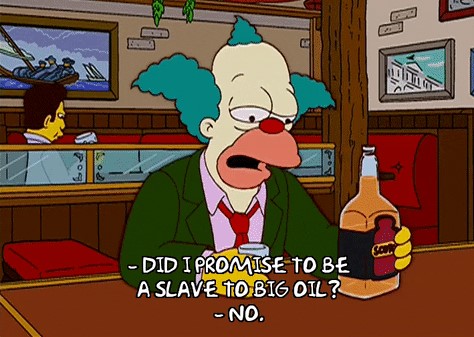
Is accountability catching up with Big Oil? A momentous week’s event suggests it might be as a Dutch Court orders Shell to reduce its CO2 emissions by 45% by the end of this decade compared with 2019 levels. Chevron shareholders vote to force cuts in “Scope 3” emissions (i.e., those in its value chain), and even Exxon Mobil sees an activist hedge fund win two board seats to challenge inattention to climate risks. A worrying sign for big coal, too, as an Australian ruling finds that the government has a duty of care to protect children from climate change harms, even though it rejects the suit by eight teenagers to block a coal mine expansion.
Lee Robinson, Atousa Tahmasebi, and Mark Plant examined the challenges ahead for fossil fuel-producing economies and approaches to help prepare for a low carbon future, while geopolitics analysis on the resilience and exposure of fossil fuel economies by Anjli Raval, Chloe Cornish, and Neil Munshi concludes many fossil fuel-dependent economies like Iraq, Nigeria, and Saudi Arabia will struggle to diversify and transition, creating not just economic but governance issues.
One hopes that one path that fossil fuel producers will avoid is raising loans against future natural resource production. It can be tempting to tap funding that won’t show up on sovereign debt load, but Ricardo Soares de Oliveira and Olivier Vallée argue that they typically prove an expensive process lacking in transparency and ripe with corruption. No surprise that most of the money ends up benefitting political elites.
Mozambique offers a warning case on borrowing on anticipated oil and gas sales. CMI senior researcher Aslak Jangård Orre and the Centro de Integridade Publica document the wide-ranging and detrimental economic, social, political, and institutional costs of Mozambique’s ‘Hidden Debt Scandal.’ It is exacerbating conflicts, undermining institutions, governance standards, and democracy, they argue.
Non-production woes
Meanwhile, the license to develop oil block OPL245 off the Nigerian’s coast has now expired after ten years that have seen Shell and Eni mired in investigations and trials. Anti-corruption campaigners HEDA and Global Witness applauded President Buhari’s insistence that the oil field could not be developed until corruption cases had concluded.
To get more people involved in extractive government rights, RESOLVE launched their Free, Prior, and Informed Consent guide supporting the rights of Indigenous peoples in natural resources development. Although in a reminder of the risks activists face, Inclusive Development International calls for the release of Ugandan human rights defender Maxwell Atuhura who was detained while investigating Total’s Tilenga oil project. His investigation links to the proposed East Africa Crude Oil Pipeline, which will be developed by Total and China’s CNOOC.
What other resources are out there? Check out this new online course by NRGI designed to help understand negotiations for extractive industry contracts. Plus, in case you missed it, Columbia Center on Sustainable Investment’s report packages fresh insights for achieving transformative change in land investment transparency.
TPA Full Disclosure: Pat Scheid on bringing people outside of the TPA field to the table
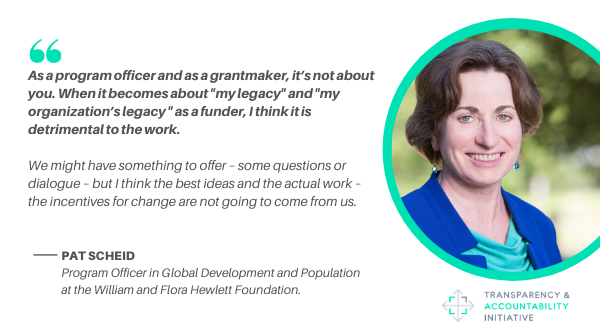
We spoke to Pat Scheid as she rounds up her tenure as a program officer in the Global Development and Population Program at Hewlett Foundation after eight years. As she moved on to her next adventure, we asked Pat what lessons she is taking from her time at the Foundation and what recommendations there are for green and veteran program officers working in the philanthropy sector. Find out from our conversation with Pat, reflecting on three decades of grantmaking experience.
Sporting scrutiny
Getting excited for the European Championships or the Tokyo Olympics? What about a lack of accountability in building infrastructure for such mega sporting events? A new Engineers Against Poverty paper highlights opacity in the legal structure of sports organizations, secrecy of information across governments and delivery authorities, and a lack of participatory space for citizens and residents.
What of private investment writ large? The shift in attention and money to environmental, social, and governance (ESG) aspects continues to grow. Karoline Heitmann, Lonneke Roza, Alessia Gianoncelli, and Steven Serneels urge companies and corporate social investors to deepen their collective corporate impact strategies. The Principles for Responsible Investment ESG Working Group paper outlines the integration of social performance into financial assessments and encourages investors to prioritize social considerations in their investment decisions.
Going local
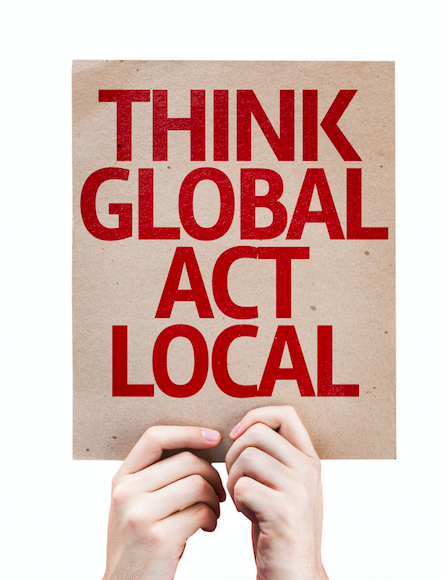
Image Source: Mikki Halpin via Medium
Reverting to where we started this week with shrinking civic space, Jenny Hodgson urges funders to reimagine civil society resourcing and commit to local giving to shift power. In response to Hodgson’s article, the Netherlands Ministry of Foreign Affairs explained why they support and value local resource mobilization, citing their strategic partnership with the Giving for Change Alliance. Blair Glencorse lays out why such support is important for good governance and global development.
Sam Marks suggests donors should consider recoverable grants and revolving fund structures as an additional tool in their continuing philanthropy, while cognitive scientist, Steven Pinker, discusses “one of the great new ideas of the 21st century”: effective altruism.
To close, interested in thoughtful grantmaking? Follow Dana Schmidt’s 30 days of mini-essays on philanthropy and intersections with parenting, education, work, and, well, life.
Other Stories
- Seize the Moment: Reviving the new Open Government Partnership process with the new Biden Administration
- Review: Nancy Leong’s Identity Capitalists
- Shifting the power in Chile: what role for philanthropy?
- Chains and undertakings in mining areas: Buriticá case (in Spanish only)
- How European governments can help spur innovations for the public good
TAI Spotlight: Collaboration Case Note: Member bilateral support
Collaboration Case Note: Member bilateral support | Transparency and Accountability Initiative (TAI)
This Collaboration Case Note describes TAI efforts to establish a clear structure and parameters for Secretariat support to individual members, complementing collective initiatives. The TAI Secretariat fulfilled 29 requests in 2020, and members reported benefitting from more robust and thoughtful program strategies and improved grantee partner onboarding processes.
What makes a good partnership? – Transparency, trust, and a bit of patience! | Hewlett Foundation
In the fourth in a series on shifting power in international giving, Pat Scheid spoke with Martin Atela, Program Manager at PASGR, and Nick Hepworth, Executive Director at Water Witness International about their work on Accountability for Water programme —and their advice on developing and maintaining equitable partnerships.
The data delusion | Luminate
Martin Tisné calls on governments to create laws and policies that stop big tech from completely obliterating our privacy. Read additional perspectives from Mariana Valente and Francisco Brito Cruz of InternetLab, Carlos Cortes of Linterna Verde, and Javier Pallero of Access Now on changing the conversation about the collective risks of data collection the State. A new film – featured in the last TAI Weekly and supported by Luminate – also explores how COVID-19 led to an erosion of privacy and the need for data and algorithmic regulation to life.
Pandemic or not, working people are always essential | Ford Foundation
Program Officer, Future of Work(ers), José García, spoke with Erica Smiley, executive director of Jobs with Justice Education Fund, a member of Always Essential campaign to discuss how the movement was formed, some of its notable wins, and its ultimate goal to reimagine an economy that works for all.
Planning for the next pandemic | MacArthur Foundation
MacArthur President John Palfrey and Executive Director of Berkman Klein Center for Internet & Society at Harvard University, Urs Gasser argued that “to keep people safe while getting everyone back to work and the economy running again, the testing and tracing systems need to work within and across geographic and political boundaries.”
Meet the 2021 Leadership in Government Fellows | Open Society Foundations
Congratulations to the new Leadership in Government Fellows! Now in its fifth year, the Leadership in Government Fellowship is intended to help fellows build on their time in the public sector and to develop ideas and strategies that advance the values of an open society.
UK condemns actions by the Belarusian authorities |UK FCDO
Foreign Secretary Dominic Raab condemns actions by the Belarusian authorities. The UK also calls for the International Civil Aviation Organization Council to meet urgently to consider the regime’s flouting of the international rules safeguarding civilian flights.
Job Listings
- Managing Director of Finance and Operations at Global Integrity – (Early application encouraged)
- Open Data Charter, Executive Director – June 7, 2021
- Africa Regional Associate at Open Ownership – June 8, 2021
- Consultancy – evaluation and student material development at Integrity Action – June 13, 2021
- Job postings at Hewlett Foundation – Ongoing
- Job postings at MacArthur Foundation – Ongoing
- Job postings at Open Society Foundations – Ongoing
- Job postings at Luminate – Ongoing
Job postings at Ford Foundation – Ongoing - Job postings at FCDO – Ongoing
Calls/Opportunities
- West Africa Civil Society Institute (WACSI) call for papers and articles – Open year-round
- USAID’s Development Innovation Ventures (DIV) grant funding– Ongoing
- Call for research proposals tax and civil society – No Deadline
- Free digital security training– Ongoing
- Call for proposals: Informality, tax, and the state– Proposals accepted on a rolling basis
Calendar
- What do supply chain due diligence regulations in Europe mean for the mining sector in the Andean Region?” – June 1, 2021 (9:00hrs (Peru) – 10:00hrs (Chile) – 16:00hrs (Germany))
- The Nexus between corruption and conflict: A critical factor for sustainable peace and security –June 1, 2020 (2pm BST)
- Lie machines: How disinformation threatens democracy and how to save it –June 10, 2020 (11:00 am – 12:00 pm)
- Time for a Climate Revolution – June 16-17, 2021 (5pm BST / 12pm EST / 9am PST)
- Global Investigative Journalism conference – November 3-5, 2021
- National Tax Association conference – November 18-20, 2021
